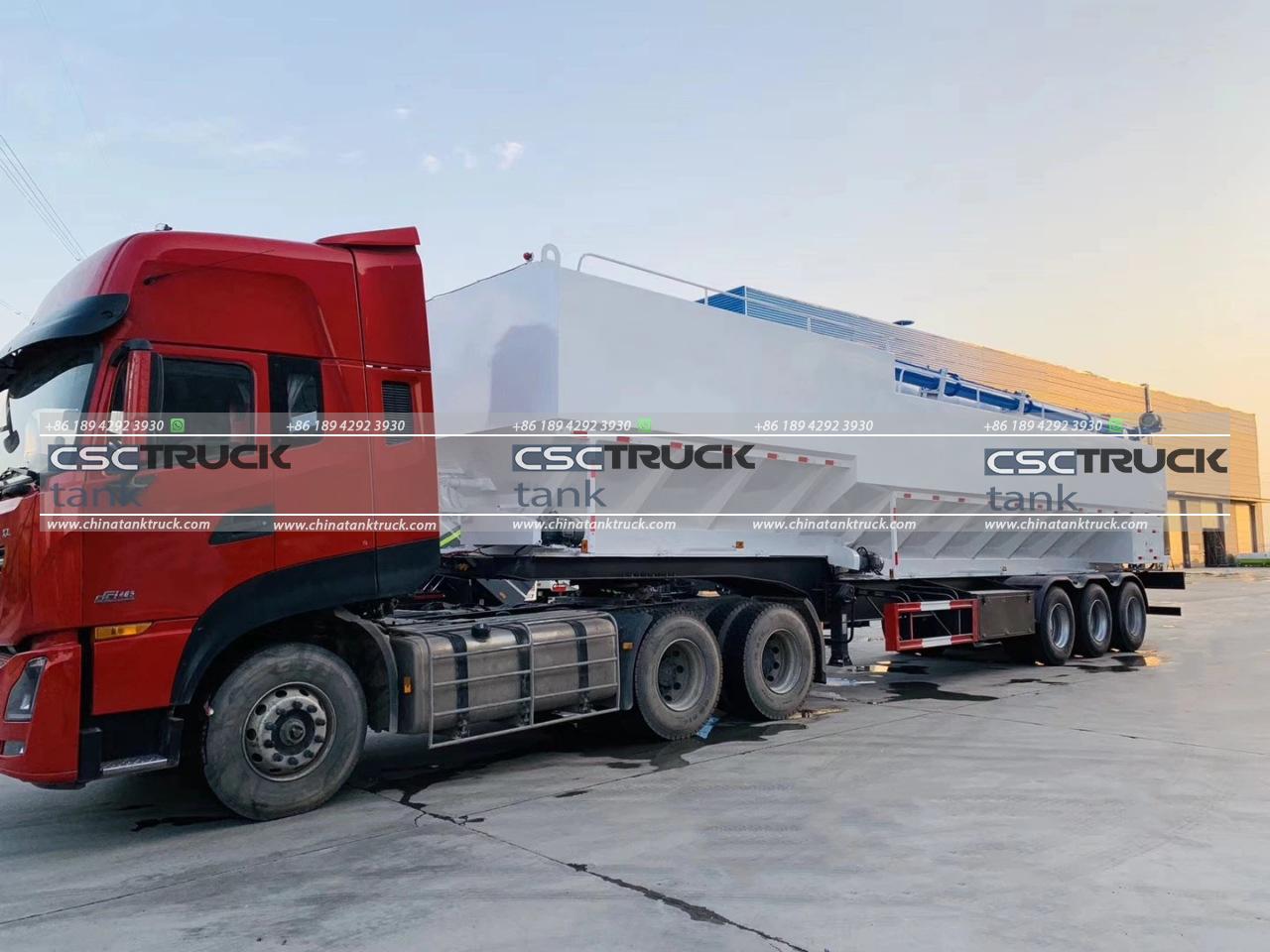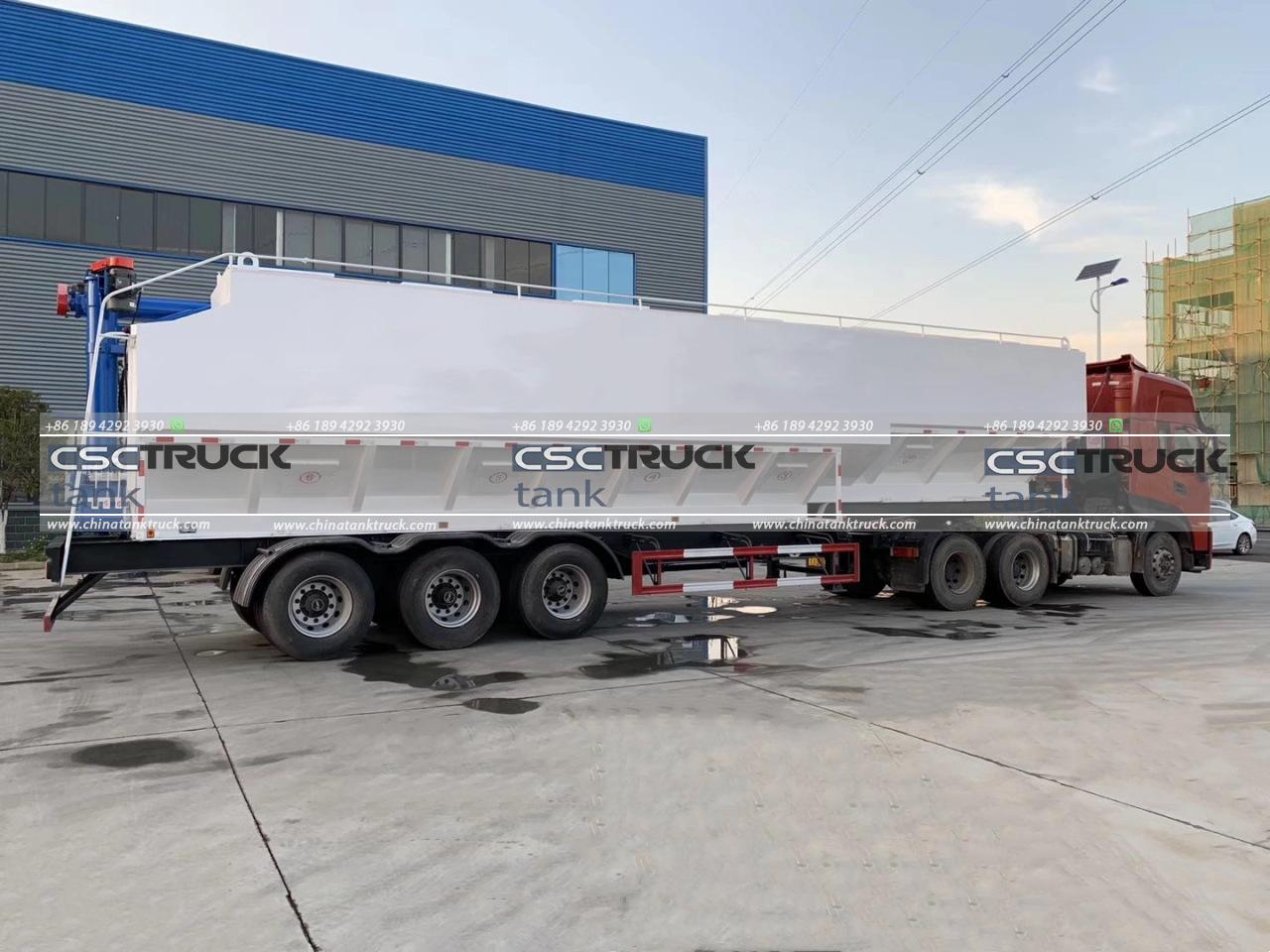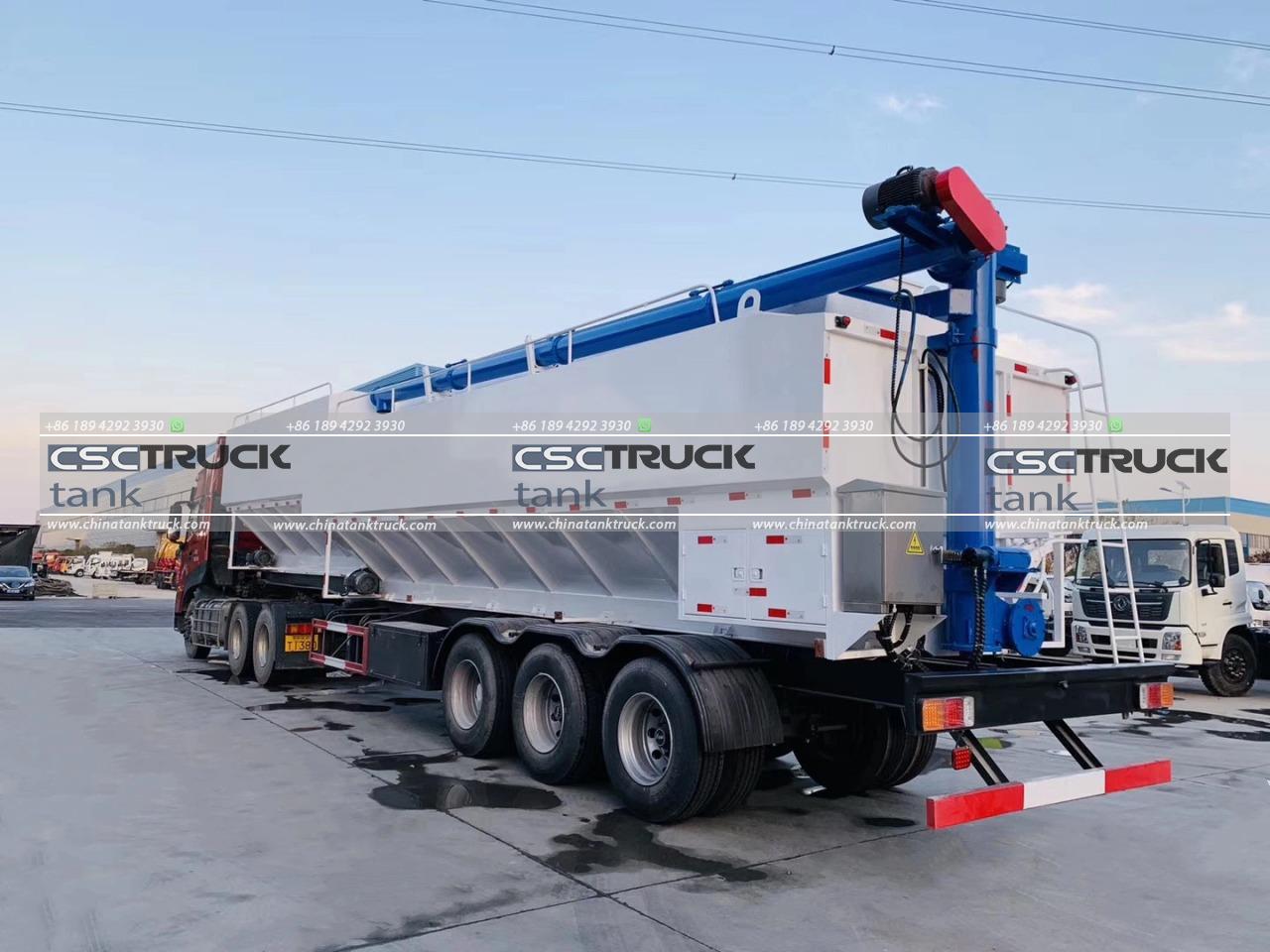In the realm of industrial logistics, the efficient transport of bulk materials is a critical component of supply chain management. Among the various methods available, pneumatic tank trucks stand out for their versatility and efficiency. These specialized vehicles are designed to transport dry bulk materials, such as cement, flour, lime, and plastic pellets, using compressed air to both load and unload the cargo. This article explores the functionality, advantages, and applications of pneumatic tank truck services, underscoring their importance in modern bulk material transport.
The Functionality of Pneumatic Tank Trucks
Pneumatic tank trucks, also known as bulk tanker trucks, utilize a system that employs compressed air to move bulk materials through pipelines. The basic structure of these trucks includes a cylindrical tank, a compressor, a series of valves, and a network of pipelines. The process begins with the material being loaded into the tank. Once loaded, compressed air is introduced into the tank, pressurizing the contents. The pressurized air forces the material through the discharge pipeline to its destination, which can be a storage silo, another transport vehicle, or directly to a point of use.
The unloading process is particularly efficient because it eliminates the need for gravity-fed systems or manual labor, ensuring a continuous and steady flow of material. Additionally, the system can handle a variety of materials, including those that are prone to compaction or require gentle handling to avoid damage.
Advantages of Pneumatic Tank Truck Services
The use of pneumatic tank trucks offers several distinct advantages:
1. Efficiency and Speed
The primary benefit of pneumatic tank trucks is their ability to quickly and efficiently load and unload materials. This is particularly advantageous in industries where time is a critical factor, such as construction or food processing. The use of compressed air allows for a continuous flow of materials, reducing downtime and increasing throughput.
2. Versatility
Pneumatic tank trucks are designed to handle a wide range of dry bulk materials, from fine powders to granular substances. This versatility makes them suitable for various industries, including construction, agriculture, and chemical manufacturing. The ability to transport different materials without significant modifications to the truck or system enhances their utility.
3. Reduced Contamination Risk
Since the system is closed and relies on pressurized air, the risk of contamination from external sources is minimized. This is crucial for industries dealing with sensitive materials, such as food products or pharmaceuticals, where maintaining purity and quality is essential.
4. Environmental Benefits
The closed system of pneumatic tank trucks also helps in reducing dust and spillage during transport. This not only helps in maintaining a cleaner environment but also ensures that the transported material is not lost during transit, which can be both economically and environmentally beneficial.
5. Safety
Using pneumatic tank trucks can enhance safety in handling bulk materials. The automated loading and unloading process reduces the need for manual labor, minimizing the risk of accidents and injuries. Additionally, the enclosed system reduces the exposure of hazardous materials to workers and the environment.

Applications of Pneumatic Tank Truck Services
1. Construction Industry
In the construction industry, pneumatic tank trucks are commonly used to transport cement, fly ash, and other fine building materials. The efficiency of these trucks ensures that materials are delivered on-site quickly and in the right quantities, which is essential for large-scale construction projects where timing and resource management are critical.
2. Food and Beverage Industry
The food and beverage industry relies on pneumatic tank trucks to transport ingredients like flour, sugar, and other bulk powders. The sanitary design of these trucks, along with the closed system, helps in maintaining the hygiene and quality of the food products during transport.
3. Agriculture
In agriculture, pneumatic tank trucks are used to move feed, grains, and other bulk materials essential for livestock and crop production. Their ability to transport large quantities efficiently helps farmers and agricultural businesses manage their resources better and ensure timely delivery.
4. Chemical Industry
The chemical industry utilizes pneumatic tank trucks for transporting various powders and granules used in manufacturing processes. The reduced risk of contamination and the ability to handle different types of materials make these trucks ideal for chemical transport.
5. Plastics Industry
In the plastics industry, pneumatic tank trucks are used to transport plastic pellets and resins. These materials need to be delivered in a contamination-free environment to ensure the quality of the end products, making pneumatic tank trucks an ideal choice.
Technological Advancements and Future Trends
The technology behind pneumatic tank trucks continues to evolve, driven by advancements in materials science, automation, and environmental considerations. Modern trucks are equipped with sophisticated control systems that allow for precise monitoring and control of the loading and unloading processes. This ensures optimal performance and reduces the likelihood of errors.
Automation and Digitalization
The integration of automation and digital technologies is transforming pneumatic tank truck operations. Automated systems can now manage the entire process from loading to unloading, reducing the need for manual intervention. Digital sensors and IoT (Internet of Things) devices provide real-time data on material levels, pressure, and flow rates, allowing for more efficient management and maintenance.

Sustainability
Environmental concerns are also shaping the future of pneumatic tank trucks. Manufacturers are focusing on developing more energy-efficient compressors and reducing emissions. There is a growing trend towards using electric-powered trucks, which can further minimize the environmental impact of bulk material transport.
Customization and Flexibility
As industries become more specialized, the demand for customized pneumatic tank truck solutions is increasing. Manufacturers are offering tailored designs that cater to specific needs, such as different tank sizes, materials, and unloading mechanisms. This flexibility enhances the applicability of pneumatic tank trucks across diverse sectors.

Conclusion
Pneumatic tank truck services play a vital role in the efficient transport of bulk materials. Their ability to quickly, safely, and hygienically move a wide range of materials makes them indispensable across various industries. As technology advances, these trucks are becoming even more efficient, environmentally friendly, and versatile, promising continued relevance in the evolving landscape of industrial logistics. Whether in construction, food processing, agriculture, or chemicals, pneumatic tank trucks provide a reliable and efficient solution for bulk material transport, underscoring their importance in modern supply chain operations.

